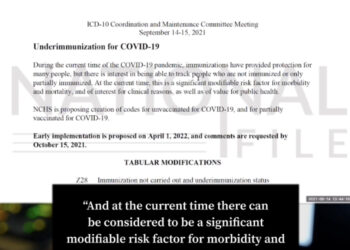Last Updated on April 23, 2020
Finnish police reportedly stopped deporting foreign criminals after it was claimed an Iraqi criminal who was returned to his home country later died at the hands of a group who persecuted him to the point where he was forced to flee to Northern Europe.
The unnamed Iraqi man was said to have been murdered by people who chased him out of Iraq, returning to the Middle East after he was given the choice of a payment to leave Finland voluntarily or detention then deportation.
He chose to take the money and leave the country in late 2017.
Although his family have claimed that the man had died, no death certificate or photos of the man’s body were produced.
The account given by the man’s daughter did not match any reports of similar murders within the time frame the criminal allegedly died.
When the news broke, open border activists ran with the unsubstantiated claims of the criminal’s murder, taking the case to the European Human Rights tribunal in November 2019.
A case against Finland was launched for breaching the man’s human rights–although there was no proof that the deportee had died, and authorities now say that the man is alive and the story of his death was completely fabricated.
National File spoke with Finnish pundit Tiina Wiik, who said:
It was a big deal back then and the liberal activists made the most of it, trying to push their agenda of ending deportations in general. The police actually halted deportations to Iraq temporarily out of their own initiative, even though it’s not supposed to be up to them to decide if people get deported. The process is that courts and Migri (immigration office) make the decision to deport, and the police just puts it in practice. The decision by the police of course got criticism from nationalists especially.
Now KRP, which is like the Finnish FBI, said they’ve opened and investigation about this case. It turns out the man is alive and the story was bs. So the human rights tribunal can give verdicts against countries without even being shown evidence that the death they’re deciding about actually happened.
Since the supposed murder, Finnish police have reportedly halted deportations of foreign criminals following the controversy–although the Finnish KRP suspects the man to be alive, claiming the documents presented to the tribunal to make the decision against Finland for breaching the man’s human rights had been forged according to Uutiset.
Finland’s police reported making an arrest over a forgery on the documents presented to the tribunal.
Uutiset reported:
– The Central Criminal Police has obtained information on the matter and a response to a request for legal assistance has been received from Iraq, among others. The case has been interrogated and one person has been arrested, says Jan Aarnisalo , Commissioner for Crime, Central Criminal Police.
“Is everything right here now?”
Crime Commissioner Jan Aarnisalo from KRP tells STT that the arrest has been made today and one person is suspected of gross fraud and gross forgery.– For him, the investigation is only at such an early stage that at this stage it is not yet possible to open the suspect, he told STT.
According to Aarnisalo, the interrogations will be continued closely on suspicion of a crime.
– I specifically emphasize doubts, he emphasized.
Aarnisalo says that other interrogations have also been made on the matter.
According to him, a preliminary investigation has been carried out for a long time so that no one is unduly subjected to criminal suspicions.
Since receiving refugees off the back of the migrant crisis in 2016, Finland reported a steep rise in foreign-born rape cases and even a grooming gang scandal of their own in Oulu–similar to the cases seen across the United Kingdom
In late February, a Finnish interpretive dance video encouraging young girls to deter would-be rapists with a standoffish choreography went viral for the wrong reasons as the internet picked the clip apart.
Another scandal was relatively underreported where a mentally ill Finnish teenager was arrested after being encouraged into plotting acts of terrorism by US intelligence on social media.




















